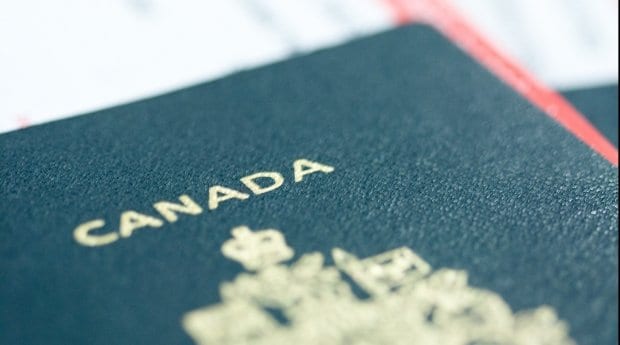Citizenship and Immigration Canada (CIC) has quietly changed their policy for declaring gender on citizenship certificates.
In a notice posted on their website, dated April 17, CIC announced that new instructions will be posted for establishing gender and will be posted in spring or summer 2015. The notice added that CIC will no longer require proof that a person has had sexual reassignment surgery (SRS).
What can people submit instead?
Instead people must submit two additional documents that establish identity, according to CIC spokesperson Bill Brown, who spoke with Daily Xtra by email. Those documents include birth certificates, records of landing or confirmations of permanent residence.
Brown also says the new policy has been in place since February of 2015.
What does this mean for passports?
This could be good news for some people who hope to change their gender on a passport. Citizenship certificates are one of the acceptable forms of identification for getting one.
However, there is still no word whether Passport Canada is reconsidering using the “X” designation for passports. When that suggestion was made in 2014, officials said that option was not then on the table.
Who was consulted?
The National Post first reported that leadership at Egale had not been consulted about the changes to the policy, nor had they heard that any other organizations were. When asked if any organizations or individuals were consulted with, Brown replied that “while there were no formal consultations, several provinces have recently amended their policies in this area. The change to CIC’s citizenship policy is consistent with these changes.”
Will this new policy simplify the process of changing gender on citizenship documents?
Generally, yes — if you live in one of the provinces or countries that doesn’t still require SRS to change your gender on official documentation. In Canada, five provinces still require proof of SRS in order to change a birth certificate.
Globally, there are many countries that still require proof of SRS to change identification — if they’ll change it at all. At the other end of the spectrum are countries like Germany, which allows parents to leave the gender field on the birth certificate blank.
Citizenship and Immigration will also accept a court order recognizing the person under a different gender identity. But going to court costs money, which is a barrier for many people. According to the American Psychological Association, about 64 percent of trans people make below US$25,000.
However, the CIC’s update does say that they are reviewing what other evidence will be accepted in order to change the sex designation for people who can’t get a “provincial or territorial document.”
RJ Vandrish, who uses the pronoun they, is in the midst of Canadian Human Rights Commission complaint against Passport Canada for not offering gender-non-specific passports and says that they are cautiously optimistic about the changes.
“It’s definitely a hopeful sign,” they say, though Vandrish would still like more details about the new policy. “Nobody should be forced to have surgery they don’t want to have or can’t access in order to have accurate documentation.”
HG Watson can be reached at hg.watson@dailyxtra.com or @hg_watson on Twitter.


 Why you can trust Xtra
Why you can trust Xtra


